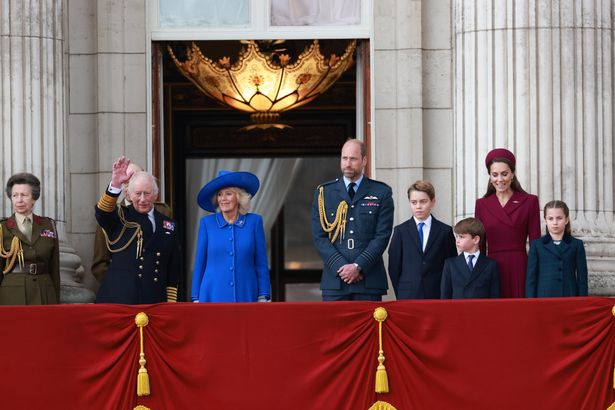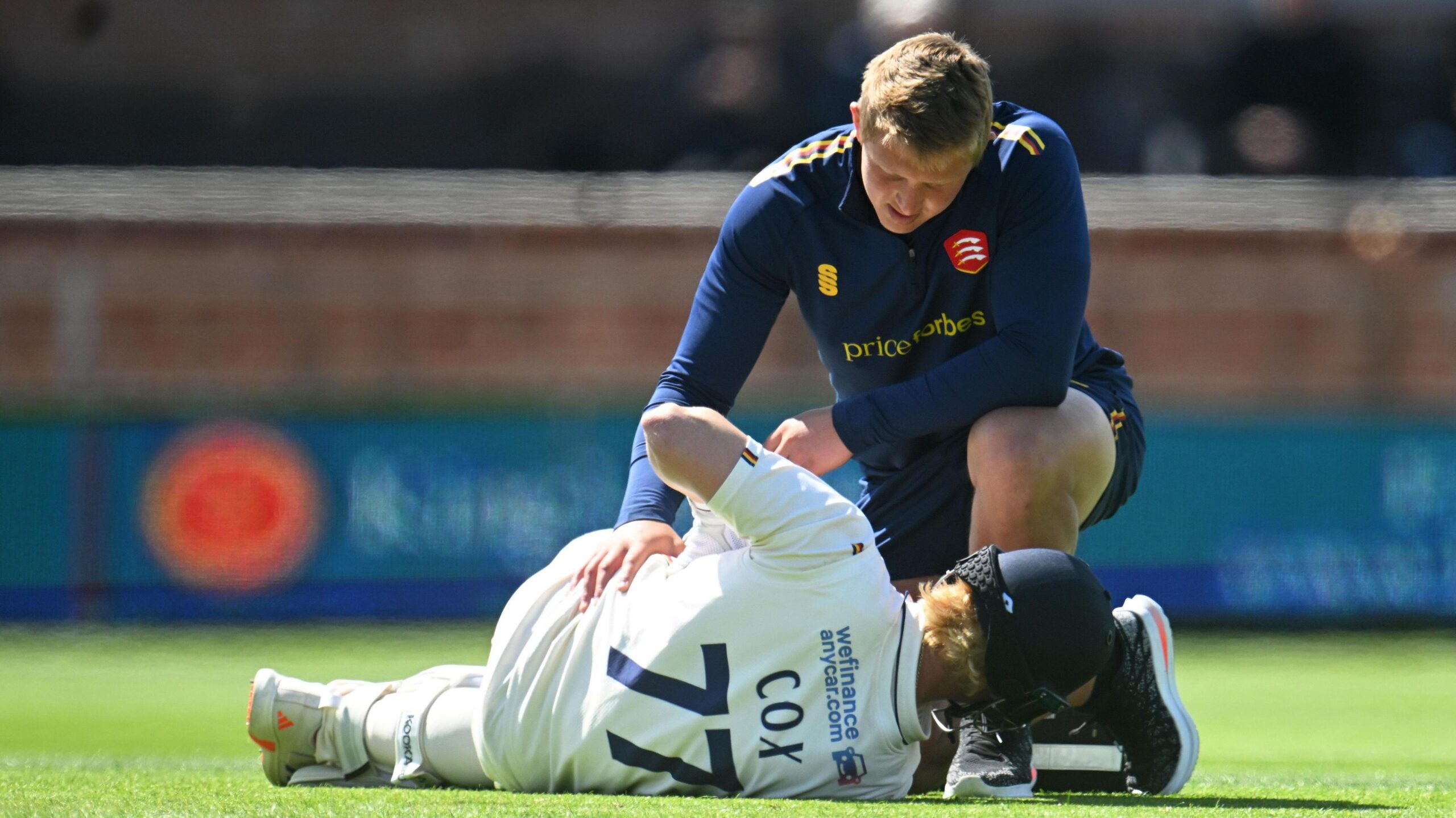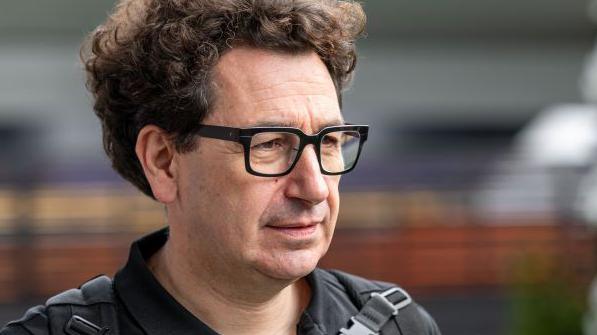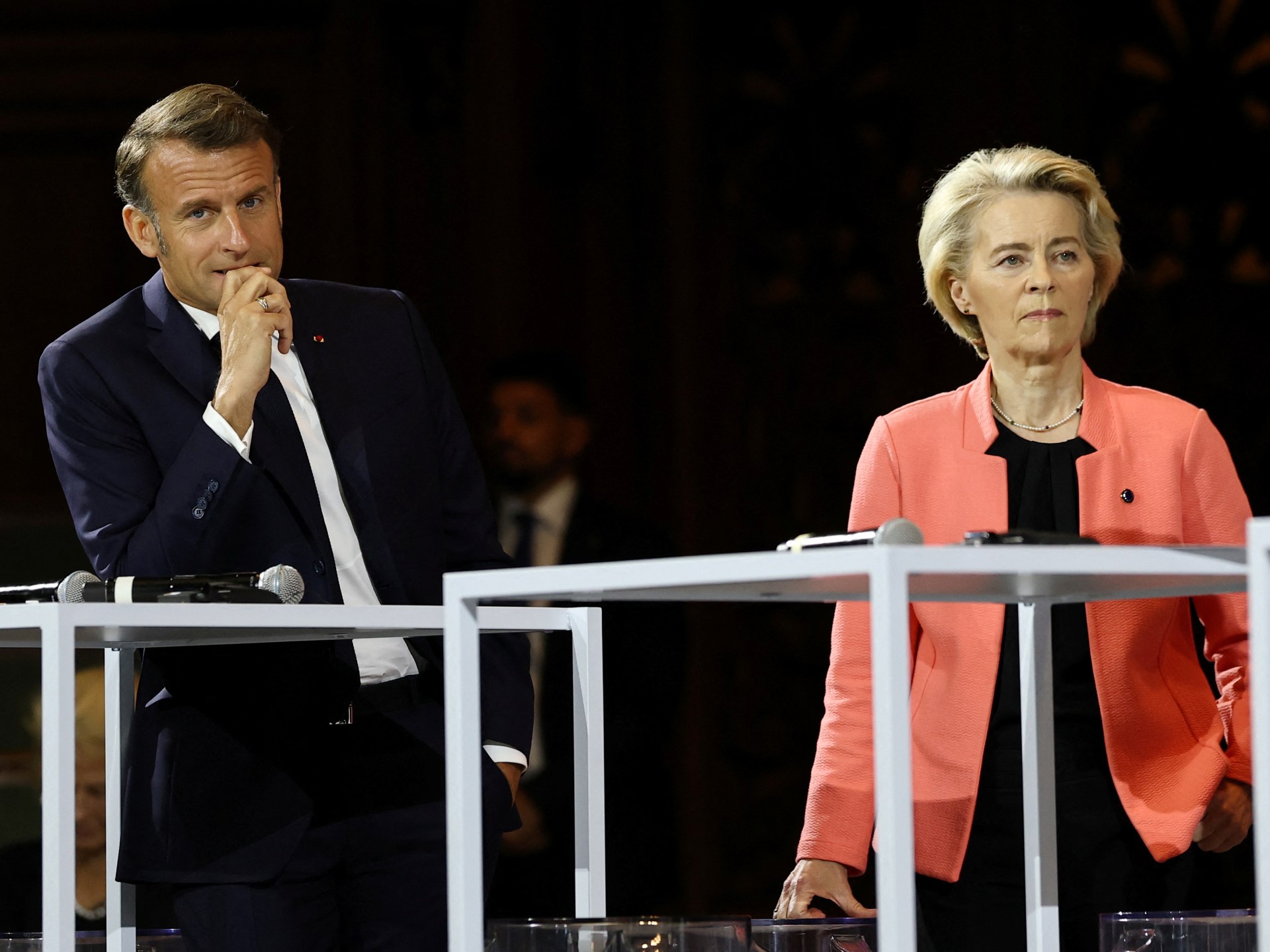French President Emmanuel Macron and European Commission President Ursula von der Leyen are hosting a conference in Paris to attract United States-based academics and researchers in the wake of US President Donald Trump’s targeting of universities.
European Union commissioners on Monday announced half a billion euros ($568m) in incentives to lure international academics to the continent at the Choose Europe for Science conference.
The meeting at Paris’s Sorbonne University is targeted at academics and researchers who fear their work will be threatened by billions of dollars of US government spending cuts for universities and research bodies as well as attacks on higher education institutions over diversity policies and pro-Palestinian demonstrations.
Pro-Palestinian foreign students in the US have been arrested and sent to detention centres, often without following due process, while universities have been pressured to punish professors speaking out against the Gaza war. Campaigners said the Trump administration’s actions, including revocations of permanent resident status of students, have a chilling effect on academic freedom – a cornerstone of the American education system.
Trump’s campaign against universities has given Europe’s political leaders hope they could reap an intellectual windfall. Macron’s office said the EU is targeting researchers working in the fields of health, climate, biodiversity, artificial intelligence and space.
For her part, von der Leyen said she wanted EU member states to invest 3 percent of their gross domestic products in research and development by 2030.
What we know about Trump’s attacks on educational institutions
US universities and research facilities have come under increasing political pressure under Trump, including threats of federal funding cuts. Trump has pushed universities to punish pro-Palestine protesters and ordered them to drop diversity, equity and inclusion (DEI) measures aimed at providing better representation for minority and poorly served communities.
Trump and his voter base have accused US universities of promoting progressive ideology over conservative values. They say the universities have failed to protect the civil rights of conservative and Jewish students.
On April 14, Harvard University rejected a series of demands from the Trump administration. Within hours, the US Department of Education froze nearly $2.3bn in federal funding for the Ivy League institution.
Last week, Trump renewed his threat to strip Harvard of its tax-exempt status, a move that could cost the university billions of dollars if implemented. Harvard has described the president’s move as “leverage to gain control of academic decision-making”. The university in Cambridge, Massachusetts, has sued the administration.
On March 10, the Department of Education announced it had sent letters to 60 higher education institutions, warning them of “enforcement actions” if they did not protect Jewish students on campus as stipulated in Title VI of the Civil Rights Act.
In February, the Trump administration froze $400m in funds for Columbia University in New York City, which emerged as the epicentre of last year’s protests against Israel’s war on Gaza. Some universities have also received “stop work” orders – calls to suspend research projects funded by the government.
Cornell University in Ithaca, New York, said it had received more than 75 “stop work” orders from the US Department of Defense, according to a statement released by Cornell President Michael I Kotlikoff on April 8.
Elsewhere, hundreds of international students and recent graduates have had their US visas revoked – some have even been arrested – for participating in pro-Palestine demonstrations.
The Trump administration is also sharpening its attacks on the National Science Foundation, the government agency that funds basic science, maths and engineering research, especially at colleges and universities.
On May 2, the White House made a preliminary budget request to cut $4.7bn, or more than half of the agency’s $9bn budget. It follows two previous waves of grant cancellations in April as well as funding cuts to other public bodies.
What is Europe proposing?
In the wake of Trump’s moves, the EU is hoping to offer a political safe haven for US scientists and academics and also to “defend our [the EU’s] strategic interests and promote a universalist vision”, an official in Macron’s office told the AFP news agency.
Monday’s conference in Paris is the latest push to open Europe’s doors to US-based researchers. In April, Macron appealed to US university staff to “choose France” and unveiled plans for a funding programme to cover the costs of bringing foreign scientists to the country.
“We were quite indignant about what was happening, and we felt that our colleagues in the US were going through a catastrophe. … We wanted to offer some sort of scientific asylum to those whose research is being hindered,” Eric Berton, the president of France’s Aix-Marseille University, told the UK-based Guardian newspaper.
The European Research Council, an EU body that finances scientific work, told the Reuters news agency that it would double its relocation budget to fund researchers moving to the EU to 2 million euros ($2.16m) per applicant.
The UK government is preparing a similar initiative. Backed by about 50 million pounds ($66m) in state funding, the scheme is designed to support research grants and cover relocation expenses for select teams of scientists, mainly from the US.
In Germany, as part of coalition talks for a new government, conservatives and Social Democrats have drawn up plans to lure up to 1,000 researchers, according to negotiation documents from March seen by Reuters that allude to the upheaval in US higher learning.
“The American government is currently using brute force against the universities in the USA, so that researchers from America are now contacting Europe,” Germany’s chancellor-in-waiting, Friedrich Merz, said in April. “This is a huge opportunity for us.”
Is Europe in a position to poach US scientists?
For decades, Europe has lagged behind the US when it comes to investment in higher education.
According to Eurostat, the EU’s statistical office, total expenditures on research and development in the EU among businesses, governments and universities was 381 billion euros ($411bn) in 2023.
That same year, total research and development in the US was estimated at $940bn, according to the National Centre for Science and Engineering Statistics, a federal data agency.
And the wealthiest US university, Harvard, has an endowment worth $53.2bn while that of Britain’s (and Europe’s) wealthiest, the University of Oxford, is $10.74bn.
“I don’t foresee a rapid build-up of additional scientific capability that could match what the US now has … for several decades,” Michael Oppenheimer, a professor of geosciences and international affairs at Princeton University in New Jersey, recently told Reuters.
Some US scientists have pointed to what they see as another drawback – European language barriers and unfamiliar laws and employment practices. In addition, research funding and researchers’ remuneration both lag far behind US levels.
The Choose Europe for Science event is expected to counter those concerns by arguing that university pay gaps will seem less significant when the lower cost of education, healthcare and more generous social benefits are taken into account.
What has been the response so far?
Aix-Marseille University in the south of France said it has received interest from 120 researchers at institutions across the US, including NASA and Stanford University in California, in the 15-million-euro ($17m) “safe space for science” programme it launched on March 7.
The initiative aims to attract US researchers from fields including health, medicine, epidemiology and climate change.
In a letter to French universities in March, Philippe Baptiste, France’s minister for higher education and research, wrote: “Many well-known researchers are already questioning their future in the United States. We would naturally wish to welcome a certain number of them.”
Elsewhere, the Grantham Institute at Imperial College London, which specialises in climate change research, has created two fellowships for early career climate researchers from the US and has already seen an uptick in applications.
An official from Macron’s office said Monday’s conference is being held “at a time when academic freedoms are retreating and under threat in a number of cases and Europe is a continent of attractiveness”.






